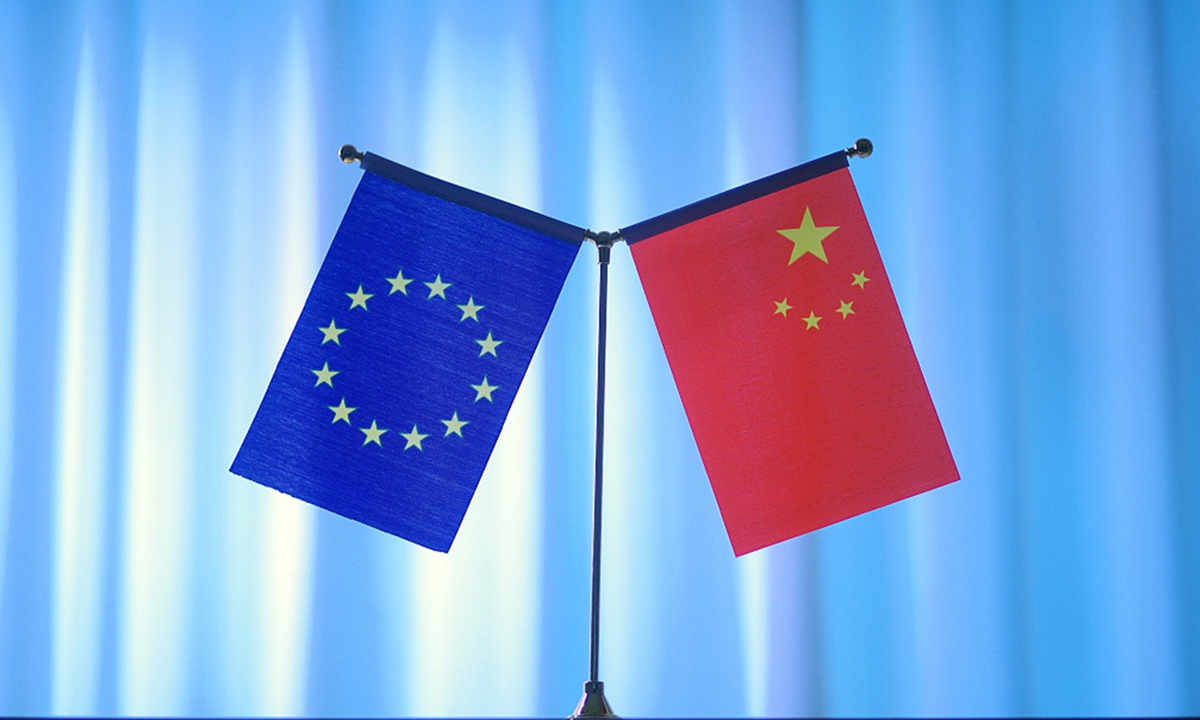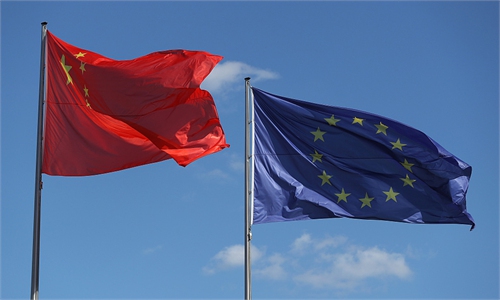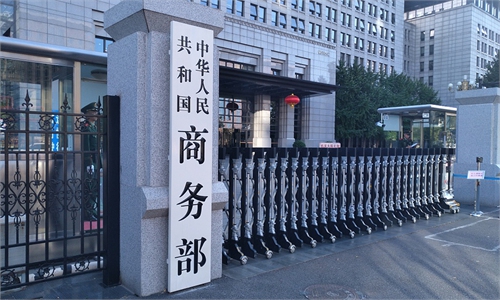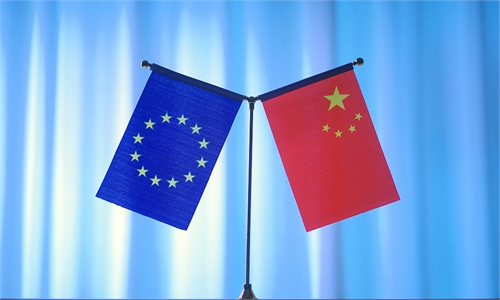Companies see easier market access, more transparency, equal treatment under China-EU CAI

China EU. Photo: VCG
A live-streaming Forum on New Investment Opportunities between China and EU was held on Thursday, with multiple analysts, enterprises, trade and investment representatives and investors taking part. Many said that a better business environment, shortened negative list, more transparency in the market, easier market access and equal treatment are expected under the China-EU Comprehensive Agreement on Investment (CAI).
China and the EU on December 30, 2020 announced the completion of negotiations on the bilateral investment treaty, after seven years of talks and 35 rounds of negotiations.
"The main problems between China and EU economies are imbalances in trade and investment, which will be better solved under the investment treaty," Zhang Jianping, Vice President of China Research Association for Social and Economic System Analysis, said at the forum on Thursday.
Merchandise trade between China and the EU in 2020 was 4.5 trillion yuan ($696.3 billion), up 5.3 percent on a yearly basis, making the EU the nation's second-largest trade partner, according to statistics of China's customs. As of November, direct investment in China from the 27 EU countries was $117.98 billion and China's investment in the EU was $80 billion, totaling $197.98 billion.
Zhang said that new opportunities brought by the CAI will probably be a shortened negative list - including the sectors of new-energy vehicles, financial services, telecommunication and cloud services - along with easier market access and more transparent market rules.
With the CAI, China will open the financial sector further, and it will also open more services and manufacturing activities, including hospitals and automobiles. China eyes furthering cooperation in advanced manufacturing, services and green industries to push bilateral ties with the EU to new heights, Li Yongjie, deputy director general of the Treaty and Law Department of the Ministry of Commerce, told a media briefing on the day the negotiations concluded.
Trade and investment representatives from EU member states including Portugal, Italy, Germany and Sweden, expressed confidence in new investment opportunities under the CAI.
Patrícia Conceição, investment counselor at the Embassy of Portugal in Beijing, told the Global Times in an exclusive written interview that the investment treaty will "create a better, more stable, more predictable and more open business environment between the EU and China," adding it will improve the level playing field between both parties and will also allow for more market access in areas such as manufacturing and services.
"The commitments made by China in the areas of sustainable development and labor rights will also be of great importance for our societies and business communities," the counselor said.
In particular, Conceição pointed out that China commits to no longer prohibiting access to the sectors covered by the agreement.
"There are also very clear rules on state-owned enterprises, transparency of subsidies and prohibition of forced technology transfers. These are issues of critical importance for EU companies and have long proven to be one of the main reasons why investment was not always easy," said Conceição.
"After long and difficult negotiations, we are very satisfied with this important milestone. We believe that Portuguese companies will benefit from the fact that new doors will be opened in China," the counselor noted, adding Portuguese companies may consider increasing their presence in the Chinese market.
Gianpaolo Bruno, commissioner at the Italian Trade Agency, also praised the agreement during the live meeting, saying the CAI will broaden European companies' market access in China including private health services and international maritime transport services. Also, the agreement will provide access to key European strategic markets for Chinese firms including the manufacturing sector, said Bruno.
German enterprises' expectations for the upcoming EU-China CAI are high, with 40 percent of the companies surveyed by the German Chamber of Commerce in China and KPMG expecting increased market access and 39 percent eyeing equal treatment of all market participants, according to a report released on Tuesday sent to the Global Times.
"The CAI makes China's efforts and measures in terms of market opening to European companies irreversible," said Stephan Woellenstein, chairman of the German Chamber of Commerce in North China.
Per the report, 77 percent of the companies surveyed expected the market to develop significantly better in China than in other economies, and 72 percent planned further investment in fields such as production facilities, machinery, and research and development.



